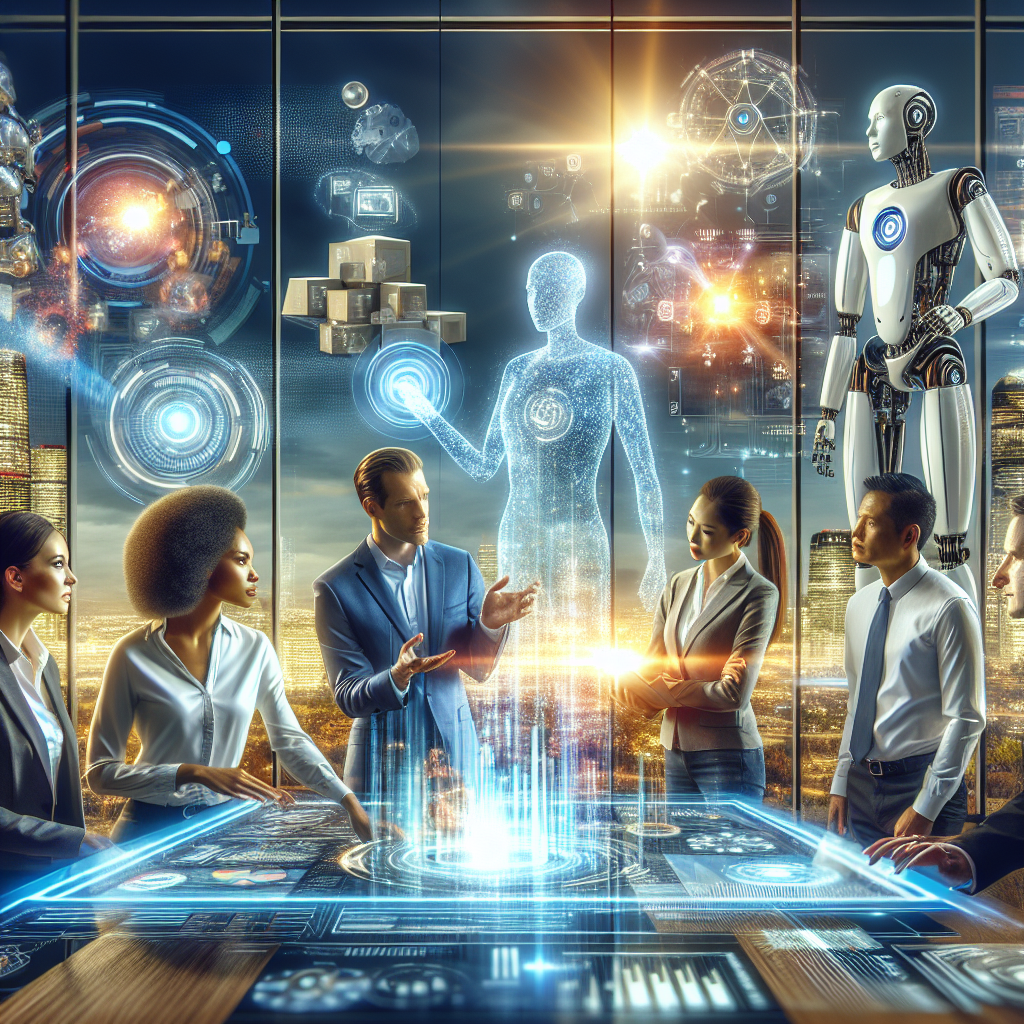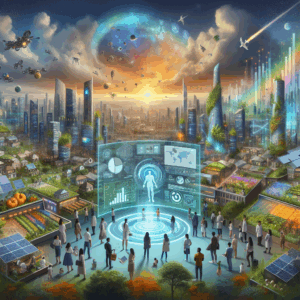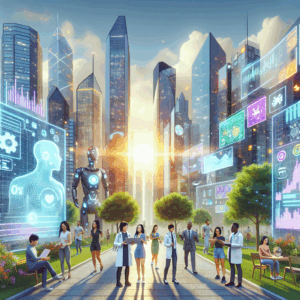AI and Its Impact on Technology and Jobs
Introduction
Artificial Intelligence (AI) has evolved from a concept to a powerful tool that is reshaping industries across the globe. From automating tasks to revolutionizing decision-making, AI’s presence is expanding in multiple sectors. The increasing integration of AI into various facets of life means it is crucial to understand its dual role—not only in enhancing technology but also in transforming job markets. This blog post explores AI technologies, their implications on employment, and the balance between innovation and ethical considerations.
Overview of AI Technologies
Artificial Intelligence is a broad field encompassing various technologies such as machine learning, natural language processing (NLP), and robotics.
- Machine Learning: An AI subset that enables systems to learn from data to improve performance over time without being explicitly programmed.
- Natural Language Processing: A field focused on the interaction between computers and humans through natural language. NLP is used in applications like chatbots and voice assistants.
- Robotics: Integration of AI in robots to perform complex tasks autonomously or assistively, often found in manufacturing and logistics.
The adoption of AI is accelerating across industries. Whether it’s through predictive analytics in healthcare, AI-driven customer service tools, or autonomous vehicles, AI’s footprint is growing. Historically, AI development has been driven by advances in computing power and big data analytics, positioning it as a cornerstone in the evolution of technology.
Transformation of Job Markets
AI’s ability to automate routine tasks means it is significantly impacting job markets. Industries such as manufacturing, services, and transportation see the most influence. With AI-powered machines performing repetitive jobs, there is both apprehension about job displacement and excitement for job creation in new sectors.
- Manufacturing: AI enhances productivity by enabling precision in tasks, such as quality control through computer vision.
- Services: Virtual assistants and customer service bots are transforming interactions, leading to efficiency improvements but also changing job roles.
- Transportation: Autonomous vehicles aim to improve logistics and reduce traffic accidents but lead to concerns about employment in driving jobs.
The debate between job displacement and creation is complex. While AI reduces the demand for certain jobs, it simultaneously creates new opportunities in AI development, data analysis, and cybersecurity, among others. For example, Amazon has implemented AI in warehouses, leading to changes in the workforce and job roles.
Skill Shifts and Workforce Adaptation
As AI technologies render some skills obsolete, others become indispensable. Technical competencies in AI and data analytics, alongside soft skills like critical thinking and creativity, are increasingly valuable. Upskilling and reskilling are vital for adapting to these shifts.
Educational institutions and training programs play a pivotal role in this transition, equipping individuals with the necessary skills for future work environments. Programs focusing on coding, digital literacy, and AI ethics are examples of how education adapts to meet market demands.
AI’s Role in Enhancing Job Functions
AI doesn’t only automate; it enhances productivity. AI assistants like Alexa or Google Assistant exemplify how AI aids in managing routine tasks, allowing human focus on more strategic functions.
AI’s contribution to decision-making in businesses is significant. For instance, analytics platforms provide insights that were previously unachievable, guiding strategy and operations. Case studies demonstrate AI’s ability to boost efficiency, such as in finance where trading algorithms outperform traditional methods.
Ethical Considerations and Challenges
AI’s impact isn’t purely beneficial; it raises ethical concerns. Job inequality and the digital divide could widen if access to AI education and tools isn’t equitable. Moreover, AI’s decision-making can encounter biases, highlighting the need for transparent algorithms and AI literacy.
Regulation is crucial to managing these challenges. Governments and companies must collaborate on policies that govern AI usage and employment practices, ensuring fairness and inclusivity. Thought leaders emphasize the importance of ethical AI development to prevent misuse and protect privacy.
Future Predictions
Looking forward, the job market will continue to evolve with AI advancements, possibly leading to scenarios where AI reshapes industries like healthcare and finance drastically.
- In 5-10 years, we may see more prevalent use of AI in remote work environments or personalized education.
Governments and organizations must take proactive measures, adapting policies to foster innovation while protecting workers’ rights and ensuring social equality.
Conclusion
The landscape of technology and employment is inextricably linked to AI developments. As we embrace AI’s potential, addressing workforce challenges is essential. To navigate this, we must balance technological innovation with ethical considerations, ensuring a future where AI benefits are maximized, and its risks minimized. Engaging in dialogue about AI’s impact on job markets is vital for shaping a positive future for all.





